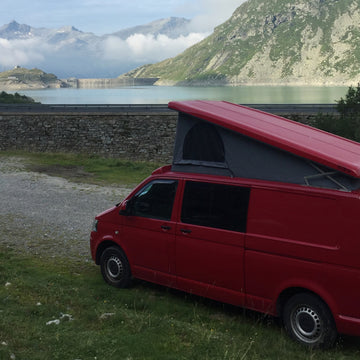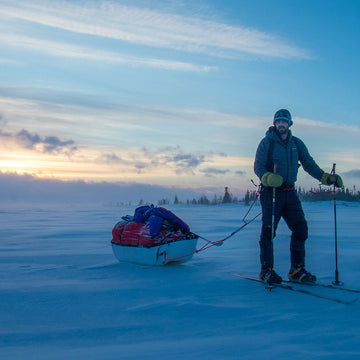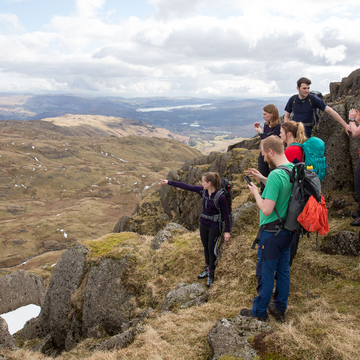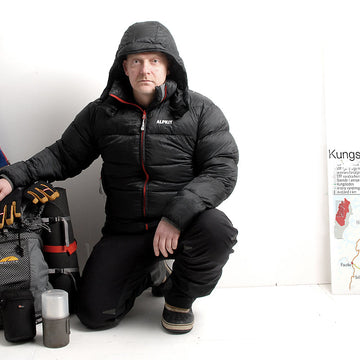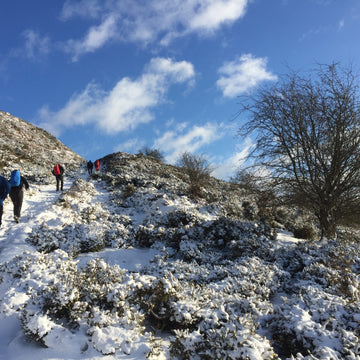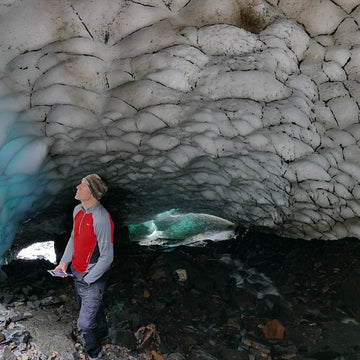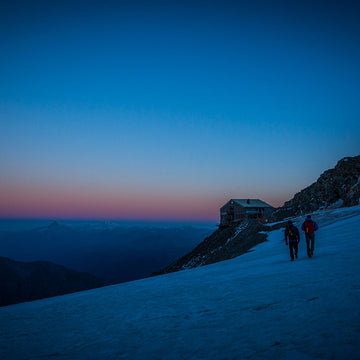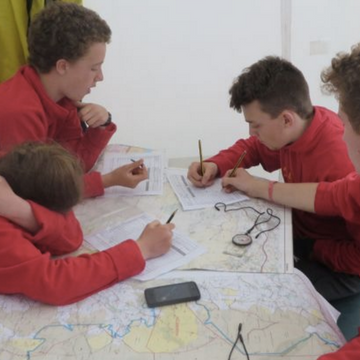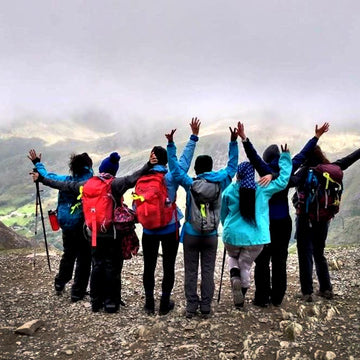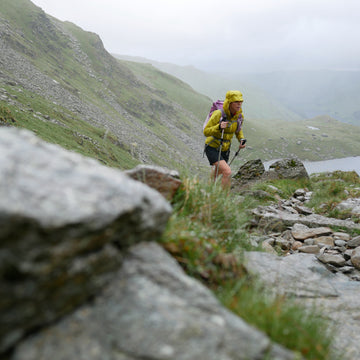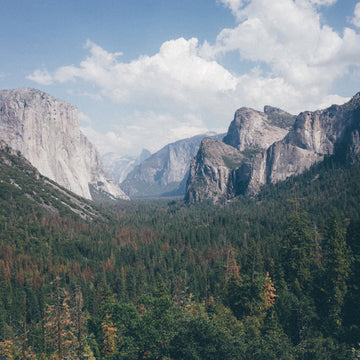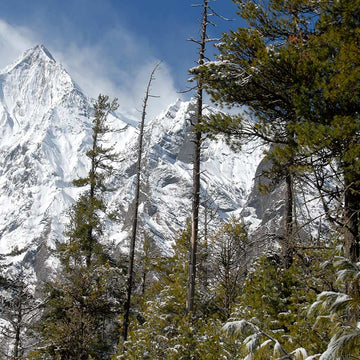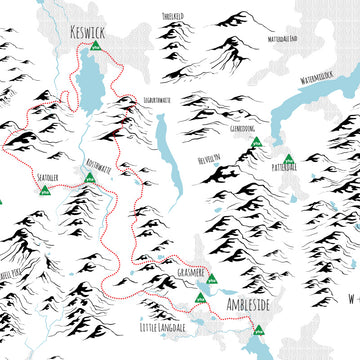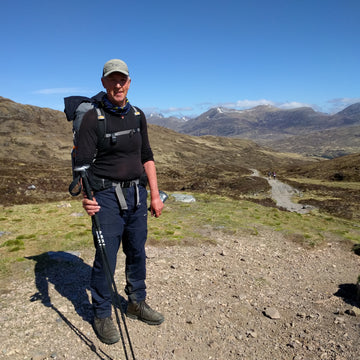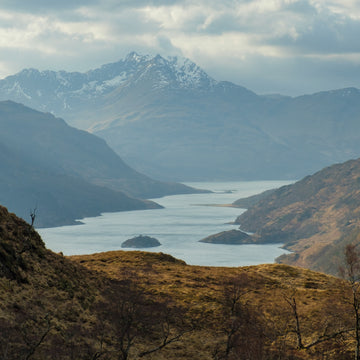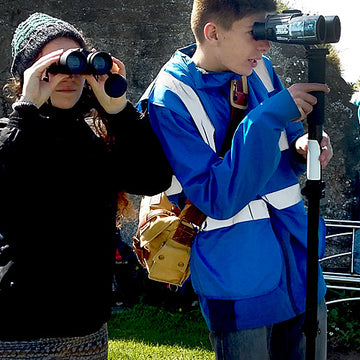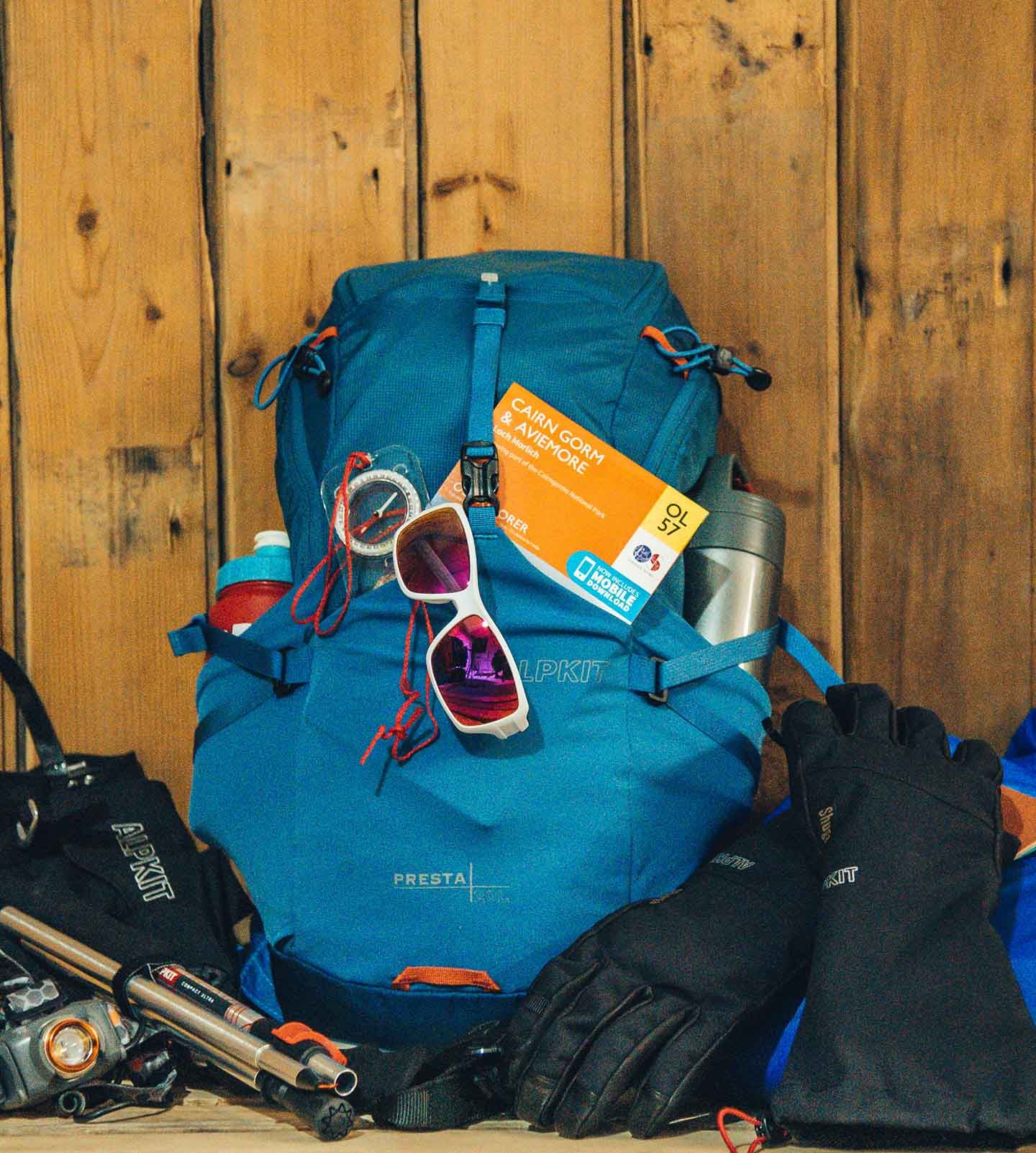
Mountaineer Tom Ripley drops 10 top tips for what to wear and what to carry when hillwalking this winter.
Winter is making a welcome reappearance on the British hills. With this in mind here is a, non exhaustive, list of things that everyone heading into the hills in winter should have with them.
1. Route plan (along with your map and compass)
Thanks to our maritime climate, the weather on our island can be surprisingly wild. This means our little hills can feel much more exciting than their size might initially suggest. If you are new to navigating in wild weather the last thing you want to be doing is planning your route on the hoof. I would strongly recommend writing out a formal route card the night before. Keep your map in a waterproof map case (I have it on good authority that Alpkit have one on the way, so keep an eye out)and put a route card (detailing: grid references, timings, barings, possible escape routes) on the other side. It is a good idea to leave a copy of this with a trusted friend and/or on your car dash board. Maps can, and do blow, away so it is a good idea to have one each, as well as compass each. GPS, and apps like view ranger are great, but don’t rely on them, as they rely on batteries. When planning your route take into account the relevant mountain weather forecast, and if you are heading out in Scotland the avalanche forecast too.
Before you head out, make sure you're prepared for anything the weather might throw at you and check out the How to Navigate in Low Visibility spotlight.

2. Bothy bag
Bothy bag, bivvy bags, group shelter, KISU, call them what you want. These things are a total life saver when the proverbial poop hits the fan, and are a nice place to have lunch out of the wind the rest of the time. I would spend a little bit extra and buy a lighter, more compact “superlight” version, as you’remore likely to always carry it. After spending an unplanned night out in one of these, which would have been exceptionally grim without, I now never go on the hill without one.
3. Mitts
For doing things, gloves are ace – especially Shiel Mitts – but if you have cold hands you just can’t beat mitts for getting them warm again. With gloves each finger has to warm itself up individually, whilst mitts let all your fingers to work together, resulting in your hand’s warming much quicker. It’s for this reason I never go out of the door in winter, without a pair of mitts in the bottom of my bag. They don’t have to be an expensive fancy pair. Wool mitts, like Dachsteins, are light, cheap and very warm. I also have pair of chemical hand warmers for when things get seriously cold!

4. Head torch
In winter, the days are short and the nights are long. If it goes dark and you’ve not got a torch you’re in for a very long night. Compared to my first headtorch, a Petzl Zoom, modern head torches are lighter, smaller, more reliable, and much brighter. Never go out in winter without one in your bag. It’s a good idea to make sure the batteries are charged, and to take a spare set too. The Alpkit Qark is both rechargeable and can be used with regualr AAA batteries, making it super handy for winter walks.These days I often take a spare torch, as it doesn’t weigh much more than taking a spare set of batteries. Make sure they're also packedsensibly, as they can easily turnon in your rucksack, leaving them flat when needed most.
5. A warm jacket
When the weather is dire or turns on you unexpectedly, your body will quickly lose heat as soon as you stop or slow down. You want to be able to add layers over the clothes you are already wearing, rather than having to remove your shell layer to add an extra fleece. An over sized synthetic jacket, with a large hood – like the Apogee - is ideal for this task and will make a big difference to your mood (no-one likes being too cold). Like a bothy bag it is a good get out of jail free card for when things don’t go to plan.

6. Flask
Never underestimate the psychological boost of a warm drink. I find that I don’t drink loads out on the hill in the winter. Instead I pre-hydrate the night before and over breakfast. Then, as soon as I am back in civilisation I start to rehydrate in preparation for the next day. A small flask with 700ml of hot squash is great mental boost if you are a bit chilly. If I am walking for a long time below the snow line, I sometime keep the flasks lid in my jacket pocket. This allows me to scoop bonus water from passing streams. If you don't want to carry something quite that big, the Clip is great little alternative at 350ml.
7. Sunglasses
If you’re trying to descend from Caingorm Plateau or the summit of Ben Nevis and the wind is blowing into your face, without goggles your life is going to be very hard/near impossible. Get a pair witha yellow lensbecause these work well in flat light. It is well worth spending an extra fiver getting a hard case to keep them in. Otherwise, if you are anything like me, you’ll break them in no time. If you don't have any goggles, the least you should head out with is a pair of Sunglasses. They won't be perfect, but it'll beat being completely blinded by a sudden snowstorm.
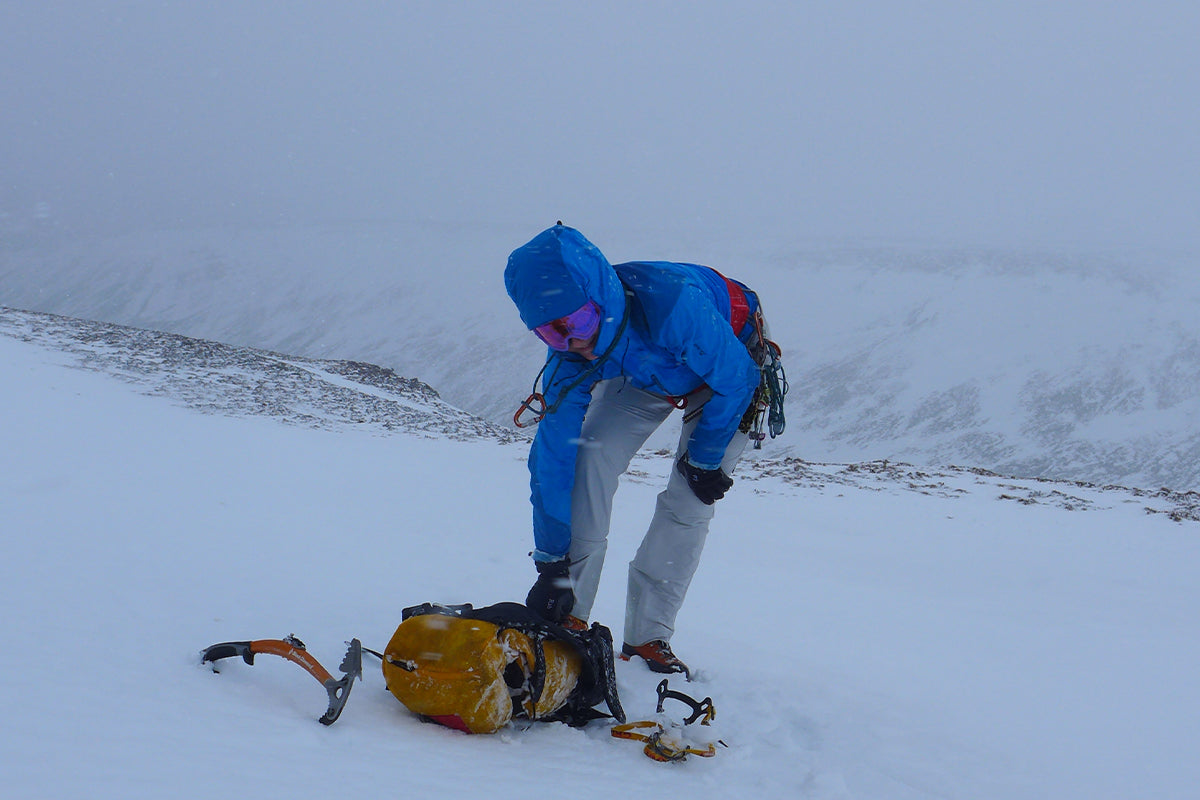
8. Gaiters
Gaiters aren’t very trendy these days (if they ever were?) but are far preferable to having wet feet when walking through boggy ground. They also do an excellent job protecting expensive waterproof trousers from crampon points. Alpkit’s Colca Gaiters are tough, simple, and great value – everything you want in a gaiter.
9. Walking poles
Walking poles are ace for a number of reasons: they save your knees, meaning you can enjoy the hills for longer; they also make walkingover rough, rocky ground much easier. Also, in the event of a lower leg injury, as I learned the hard way back in December, they make walking off the hill a dam sight easier. Get a pair that pack up nice and small like the Compact Ultras, that way they don’t catch on things. Rather than strap them to the outside, I always take my pair apart, and put them inside my rucksack. Make sure they have snow baskets too.

10.Ice axe and Crampons
Sometimes when there is just a dusting of snow you can get away without an ice axeand crampons. However if there is snow on the ground they’re going in my bag. What axe, and which crampons, to buy is an article in its own right. My advice would be to go to a good climbing shop, along with your mountaineering boots, and try a few out.
Walking in crampons, and using an ice axe, takes some getting used to. Whilst you can muddle along, by reading books, articles, and watching youtube videos - unless you are fortunate enough to have an experienced friend, who’ll take you out - it is probably a good idea to have a day out with a qualified guide or instructor. They’ll teach you howto use them, and a lot more besides just the basics. It might seem like a lot of money, but in the long term it’ll be a great investment. The Jonathan Conville Trust offer subsidised winter training for those under 30. If you do decide to go with the ‘muddle along’ approach, I would strongly advocate that you are cautious, build up slowly, and are not afraid to turn around.
There you have it, by no means everything you'll need but certaily a starting point for the kityou shouldn't head out into the hills without. If you think you're ready for an epicwinter walk, why not head to the Lake District and follow our route for a multi-day adventure.

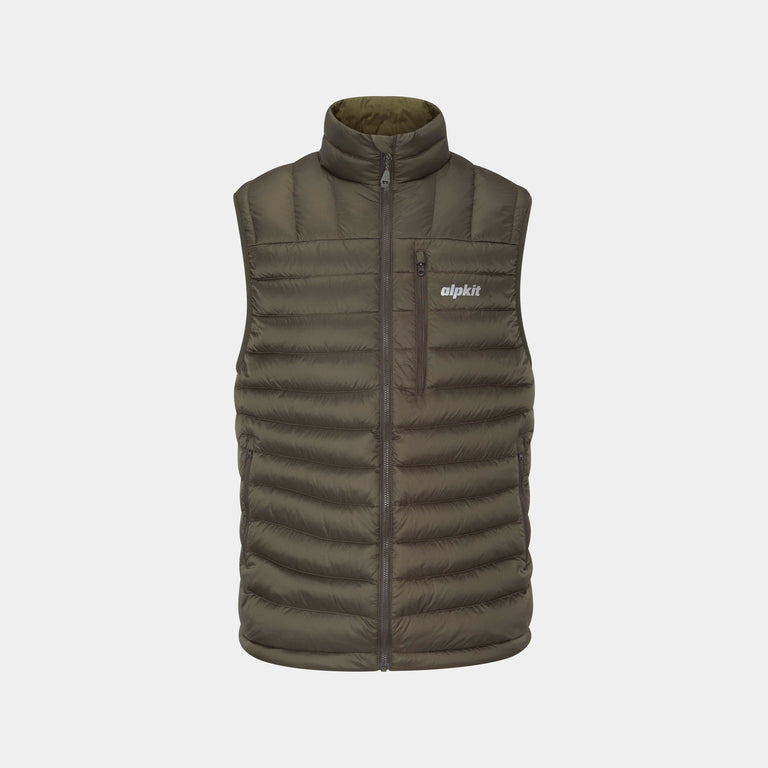

![Filoment Vest [Womens]](http://alpkit.com/cdn/shop/files/womens-filoment-vest-2024-celestial-COLOUR-CHANGE.jpg?v=1732661095&width=768)
![Filoment Vest [Womens]](http://alpkit.com/cdn/shop/files/Filoment-Vest_AW24_Womens_Chamonix_3908_1.jpg?v=1762190565&width=768)

![Filoment Hoody [Mens]](http://alpkit.com/cdn/shop/files/AW25-Chamonix-JW-5042_2.jpg?v=1764948177&width=768)
![Filoment Hoody [Womens]](http://alpkit.com/cdn/shop/files/womens-filoment-2024-celestial-COLOUR-CHANGE.jpg?v=1762183751&width=768)
![Filoment Hoody [Womens]](http://alpkit.com/cdn/shop/files/Camping-Arran-9548_1.jpg?v=1762190561&width=768)
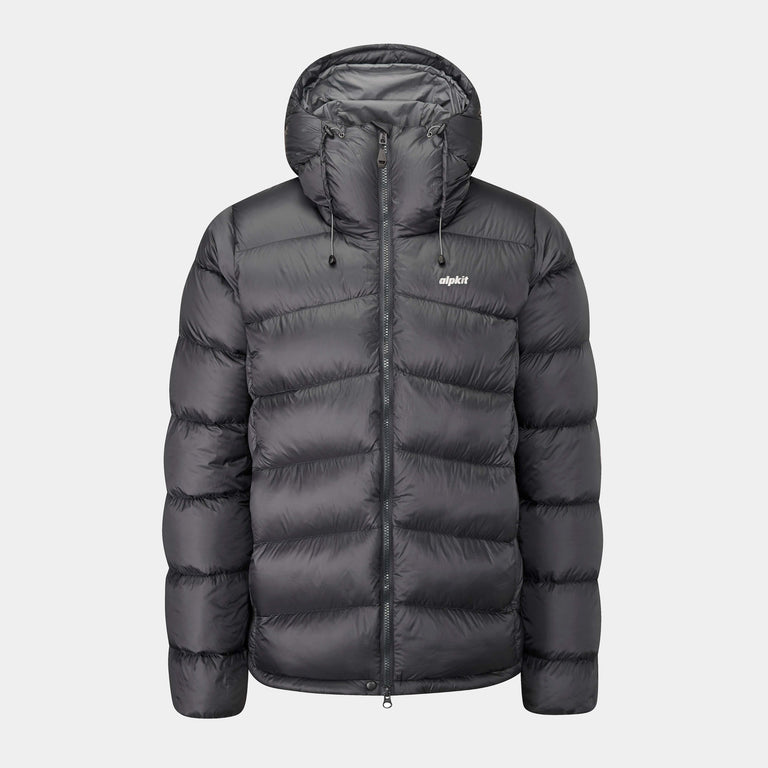
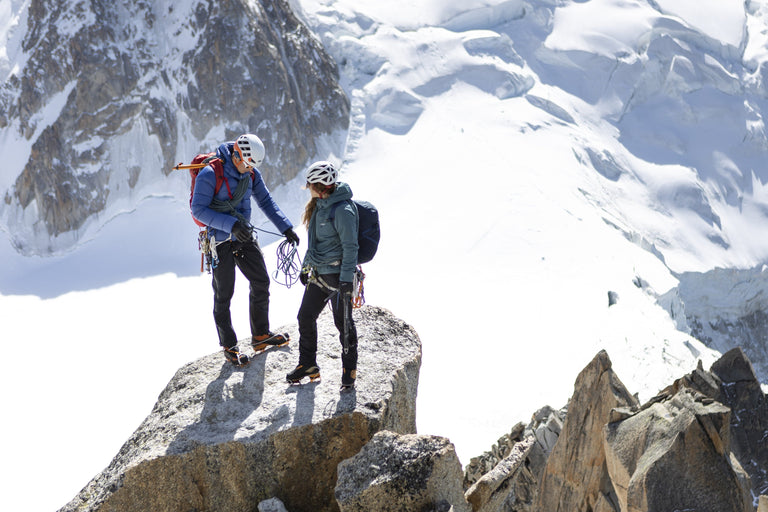
![Fantom [Womens]](http://alpkit.com/cdn/shop/files/womens-fantom-2025-lego.jpg?v=1761315471&width=768)
![Fantom [Womens]](http://alpkit.com/cdn/shop/files/AW25-Chamonix-JW-6769_1.jpg?v=1764162276&width=768)
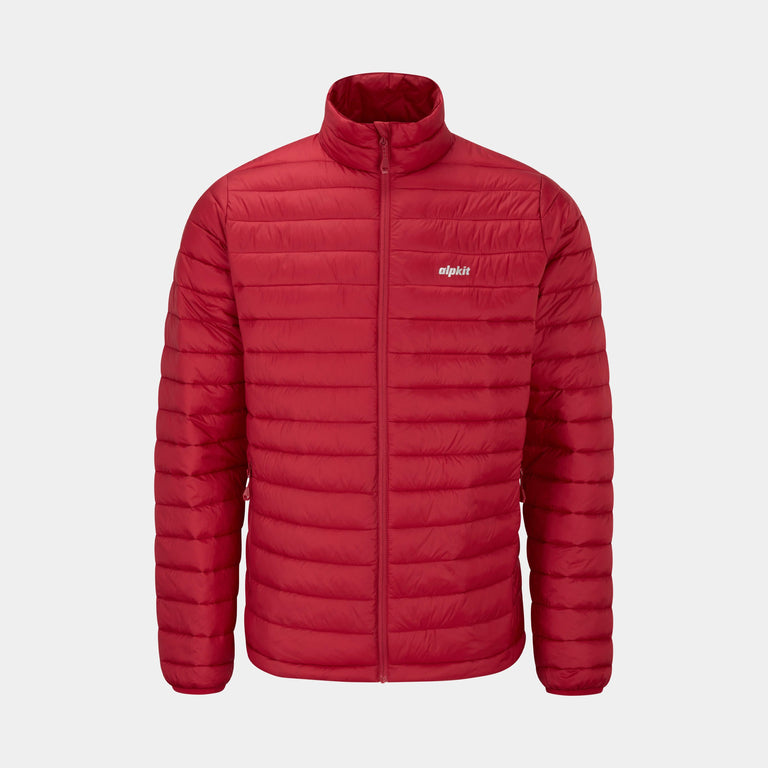
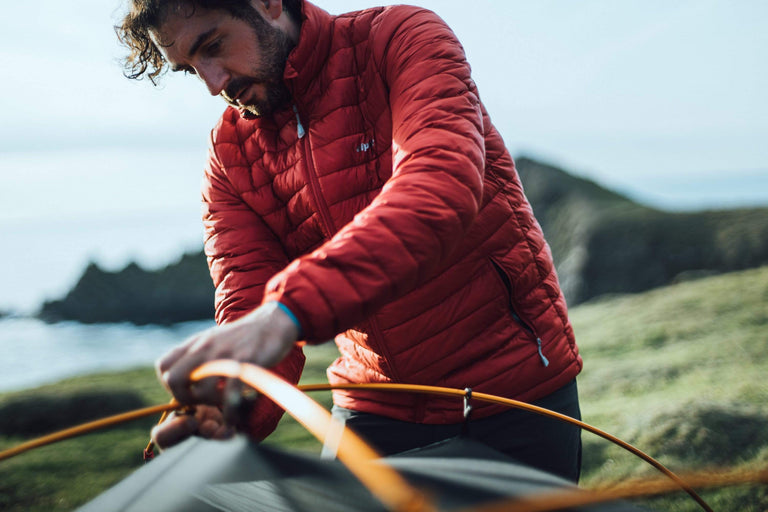
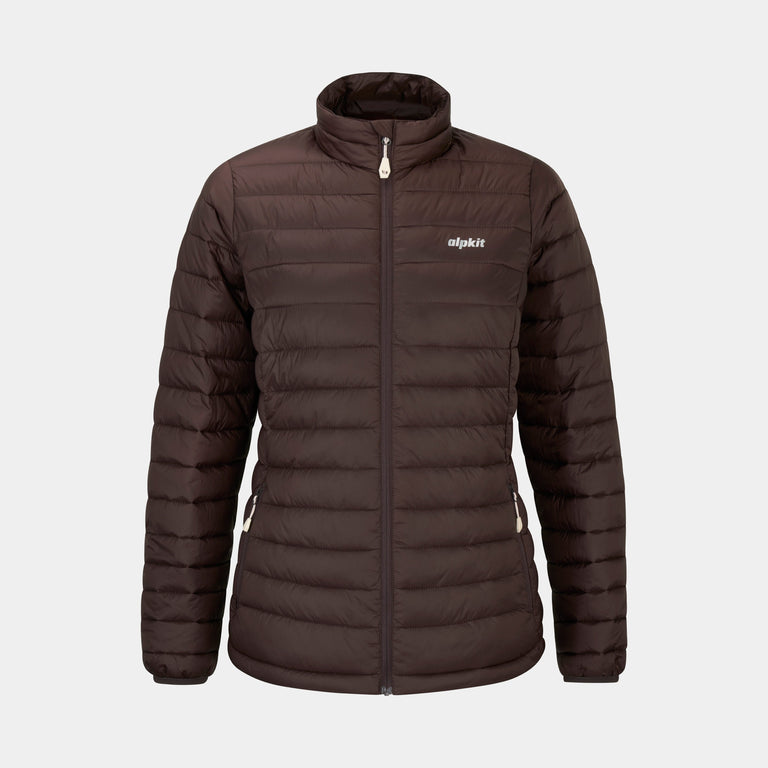
![Talini [Womens]](http://alpkit.com/cdn/shop/files/talini-1.jpg?v=1761823381&width=768)

![Heiko [Mens]](http://alpkit.com/cdn/shop/files/Heiko-Men-Location-1.jpg?v=1764163055&width=768)
![Heiko [Womens]](http://alpkit.com/cdn/shop/files/heiko-womens-2025-cosmos.jpg?v=1759943580&width=768)
![Heiko [Womens]](http://alpkit.com/cdn/shop/files/Heiko-Location-2.jpg?v=1765360327&width=768)
![Jura Mountain Smock [Womens]](http://alpkit.com/cdn/shop/files/jura-womens-2025-alder_d06073cb-b198-4e64-8c67-594b1ed0069e.jpg?v=1762186178&width=768)
![Jura Mountain Smock [Womens]](http://alpkit.com/cdn/shop/files/Alpkit-Winter-Swim-91_1__1.jpg?v=1762190567&width=768)
![Jura Mountain Smock [Mens]](http://alpkit.com/cdn/shop/files/jura-mens-2025-alder.jpg?v=1759922692&width=768)
![Jura Mountain Smock [Mens]](http://alpkit.com/cdn/shop/files/jura-mens-2025-alder-1.jpg?v=1765361100&width=768)
